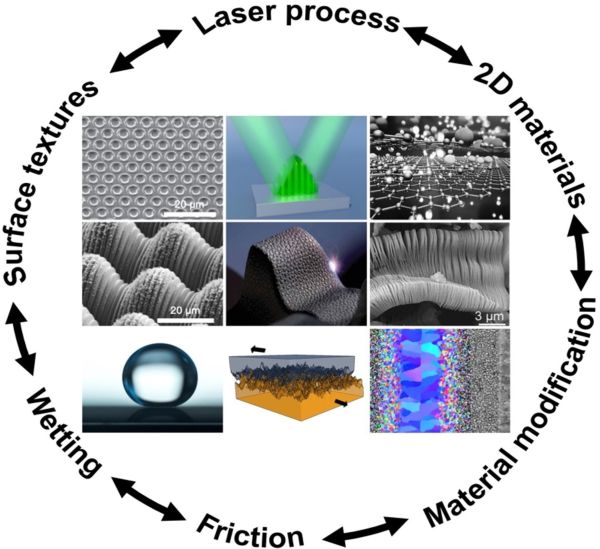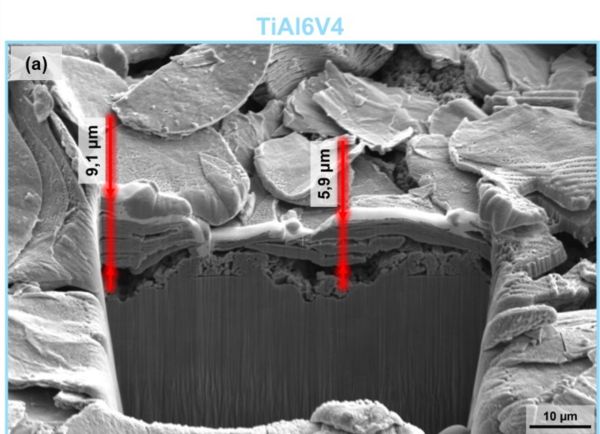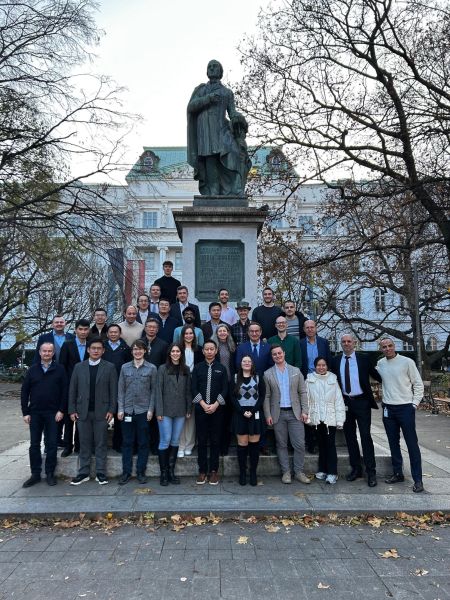IEA AMT Task 12: Novel 2D materials and laser-based surface processes to increase resource efficiency in mobility applications
Short Description
The lubrication of machine elements to ensure the operational capability of equipment and thus the avoidance of maintenance costs is a central and highly relevant topic worldwide, even in the age of digitalisation and e-mobility. According to estimates by Holmberg and Erdemir, approximately 23 % of the total worldwide energy consumption is due to friction and wear. Of this, approximately 20 % is due to overcoming friction and 3 % is due to maintenance/repair of wear-related damage (Holmberg, K., & Erdemir, A. (2017). Influence of tribology on global energy consumption, costs and emissions. Friction, 5(3), 263-284.).
Figure 1 shows very clearly the global energy and cost expenditures as well as CO2 emissions (data from 2017) caused by friction and wear, but also the potential savings in energy, costs and CO2 emissions for four major areas if tribological concepts for reducing friction and wear were implemented on a time scale of 8 years. The transport and energy sectors are particularly energy-intensive (Holmberg, K., & Erdemir, A. (2017). Influence of tribology on global energy consumption, costs and emissions. Friction, 5(3), 263-284.).
The aim of this annex is to deal with novel 2D materials (e.g. MXenes, graphene/graphene oxide, transition metal dichalcogenides) and laser-based surface processes (Direct Laser Interference Patterning), which contribute significantly to the reduction of friction and wear and thus to durability and resource efficiency.
In Task 12, information will initially be collected as part of a literature study. This will be followed by experimental work by the participating countries in the context of the synthesis and characterisation of new 2D materials. Next steps include collaboration with "sister" TCPs such as AMF or HEV-TCP as well as the organisation of workshops and dissemination with corresponding deliverables such as newsletters and conference contributions. Furthermore, a YouTube webinar series 2D MaT has already been established by TU Wien. Invited lectures from research and industry by renowned colleagues take place there once a quarter.
The last ExCo meeting took place from 26. - 29.06.2023 in Vienna.
Project Images
Terms of use: The pictures listed underneath the header “Project Pictures” originate from the projects in the frame of the programmes City of Tomorrow, Building of Tomorrow and the IEA Research Cooperation. They may be used credited for non-commercial purposes under the Creative Commons License Attribution-NonCommercial (CC BY-NC).
Participants
Austria (Task lead), Germany, China, UK, USA, Brazil
Contact Address
Project lead
Prof. Dr.-Ing. Carsten Gachot
Institute of Engineering Design and Product Development E307
Research Unit Tribology
Vienna University of Technology
Lehárgasse 6, 1060 Vienna
Phone: +43 (1) 58801 30763
E-Mail: carsten.gachot@tuwien.ac.at

![Figure 1: Energy consumption, costs and CO2 emissions as well as respective savings through tribological measures calculated over a period of 8 years [Holmberg & Erdemir].](/resources/iea_img/iea-amt-task-12-grafik1.png)



